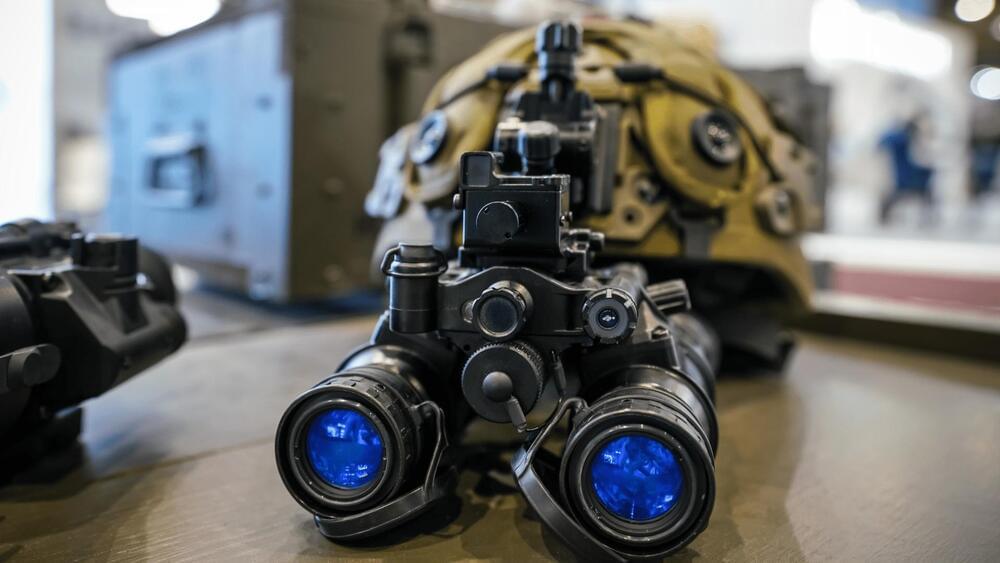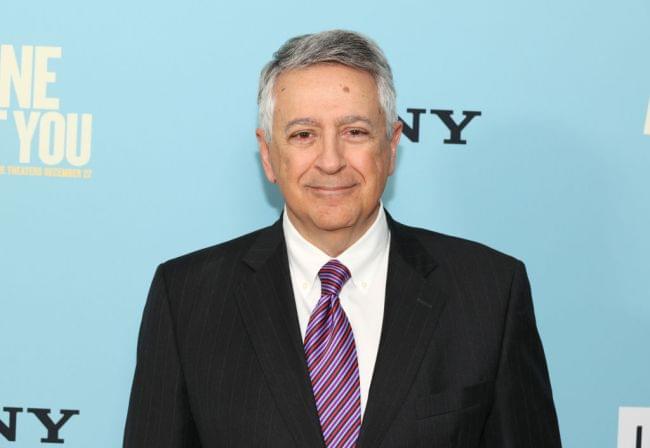Do you have trouble learning endocrine system terminology? That shall end today! Join us now on episode 10 of our Anatomical Terminology for Healthcare Professionals course series on Youtube:
Category: entertainment – Page 19
They’re Made Out Of Meat
This is the short film I made in 2004. I shot it as my final film project at #NYFA. It stars Tom Noonan, Ben Bailey and Gbenga Akinna…


Revolutionary thin film can add night vision to normal glasses
The new ultra-light night vision filters which weigh less than a gram almost resemble those seen in the movies. These glasses allow users to catch a glimpse of the visible and infrared spectrum. They also help in allowing the user to drive safely in the dark.
As of now, traditional night vision technology is in use. It required infrared photons to pass through a lens. Then it would meet a photocathode that would help in transforming these photons into electrons.
These electrons travel through a phosphor screen and are reconverted back to photons. These produce an intensely visible image which the human eye can see. In order to prevent thermal noise from being intensified these elements need cryogenic cooling.


Sony Will Use AI to Cut Film Costs, Says CEO Tony Vinciquerra
The next “Spider-Verse” film may have a new animation style: AI.
Sony Pictures Entertainment (SPE) CEO Tony Vinciquerra does not mince words when it comes to artificial intelligence. He likes the tech — or at the very least, he likes the economics.
“We are very focused on AI. The biggest problem with making films today is the expense,” Vinciquerra said at Sony’s Thursday (Friday in Japan) investor event. “We will be looking at ways to…produce both films for theaters and television in a more efficient way, using AI primarily.”

Scientists discover polar Bloch points in strained ferroelectric films
Researchers from the Institute of Metal Research (IMR) of the Chinese Academy of Sciences (CAS) and collaborators from the Institute of Physics of CAS have directly observed polar Bloch points in strained ferroelectric films.
Their work is published in Nature Communications.
Based on their previous work on the polar meron lattice, the researchers considered the model of a tensile-strained ultrathin ferroelectric PbTiO3 film sandwiched by symmetric electrodes in phase-field simulations and found that the merons transform into Bloch points with the increase of the electrode thickness.
Turn This Pop-Up Book into Interactive Adventure with Light
Lowtek Games combined the multifunctionality of a screen with the beauty of a pop-up book in a unique project that will take your imagination to another level. Codenamed Lowtek Lightbook, this interactive experience allows you to not only read stories but also play various games.
For example, you can color pictures with digital paints, find hidden objects, run away from aliens, or deliver food to them – all thanks to projection mapping and Lowtek Games’ clever thinking. Moreover, the story of Bib Goes Home can be even more engaging if you manually make Bib go home and explore his surroundings using a controller and a projector.
Open-Source Freecam Tool For PS2 Games On PCSX2 Emulator
One of my hobbies is hacking in free cams to old PS2 horror games so I can look at everything. I just open sourced PS2 Cam Acolyte, a simple Windows exe that supports a handful of games(SH2, SH Origins, Kuon, Rule of Rose). Just run it alongside PCSX2:https://t.co/bblKBvUeyM pic.twitter.com/Aj6mcsyN46
— Withering Rooms (@WitheringRooms) May 20, 2024
If you’ve ever wanted to explore the corners of your favorite PlayStation 2 title, check out PS2 Cam Acolyte which already supports a handful of horror games.
Star Trek — Suffer the Death of Thy Neighbour
Season 2 Episode 18Production No. #048Episode: “The Immunity Syndrome” The Enterprise encounters a gigantic force, an area of darkness capable of absorbing al…